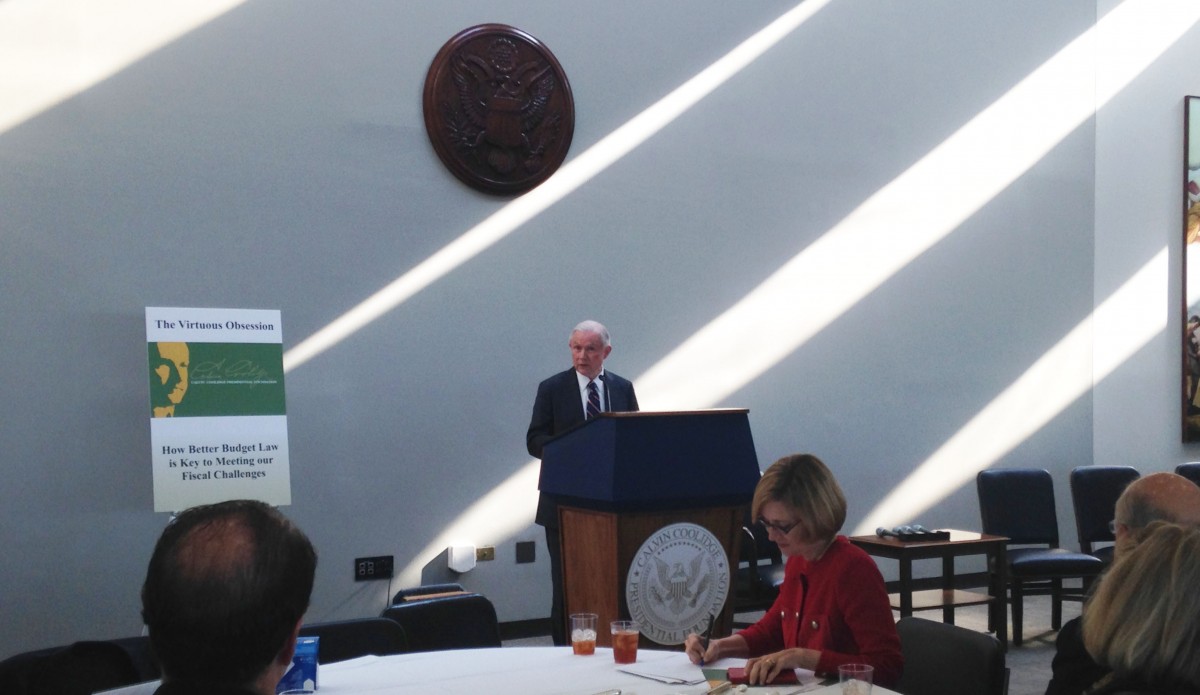WASHINGTON – Sen. Jeff Sessions, who is in line to chair the powerful Senate Budget Committee, pledged Wednesday to take a tough stand on cutting a federal deficit that the Congressional Budget Office projects will widen in 2016 and beyond.
“One of my favorite economists is Julie Andrews,” Sessions, R-Ala., said to an audience of Capitol Hill staffers, economists and tax experts at the Hart Senate Office Building Wednesday.
“Nothing comes from nothing, nothing ever could,” the senator quoted in a lilting voice, borrowing from “The Sound of Music”.
Sessions, who is expected to have a major say in shaping the 2015 federal budget, insisted that the new Republican-led Congress must write a long term budget plan that trims spending in order to shrink the national debt and annual deficits. Taking on more debt to pay off the huge existing debt won’t get it done, he said. Nothing comes from nothing.
Producing more American energy, simplifying the tax code and repealing Obamacare were among his ideas for more responsible budgeting.
As the ranking member of the Senate Budget Committee this year, Sessions is expected to assume the chairmanship when the 114th United States Congress convenes in January. At the Calvin Coolidge Presidential Foundation-sponsored event Wednesday, he emphasized how the Democrat-led Senate has yet to approve a single spending bill for the 2015 fiscal year.
To be sure, the federal deficit has shrunk as the economy improves from the Great Recession. For fiscal year 2014, which ended Sept. 30, the deficit totaled $483 billion, down 41 percent from $680 billion in fiscal year 2013. For 2015, the CBO projects the deficit will drop again, down to $469 billion.
The lower deficit is attributed to the upturn in the U.S. economy, as automatic spending on unemployment insurance and food stamps decreases from recessionary levels.
But economist Michael Strain of the conservative-leaning American Enterprise Institute says that over the medium term – that is, the next 20 to 30 years, the United States is facing unsustainably large projected debt and deficits.
According to CBO projections, the federal deficit will climb to $1 trillion by 2022 due to an aging population, rising health care costs, and growing interest payments on federal debt, which currently stands at about $18 trillion.
Strain, interviewed by telephone, said the way to slow the looming deficit increase is a matter of either reducing spending, raising revenues — or a combination of the two.
“The hard part is politics,” Strain said.
And the lack of an enforcement mechanism when deadlines are missed on Capitol Hill.
“The law says you’re supposed to produce a budget,” Sessions said in his speech. “The only problem was that it didn’t say you have to go to jail if you don’t produce a budget.”


